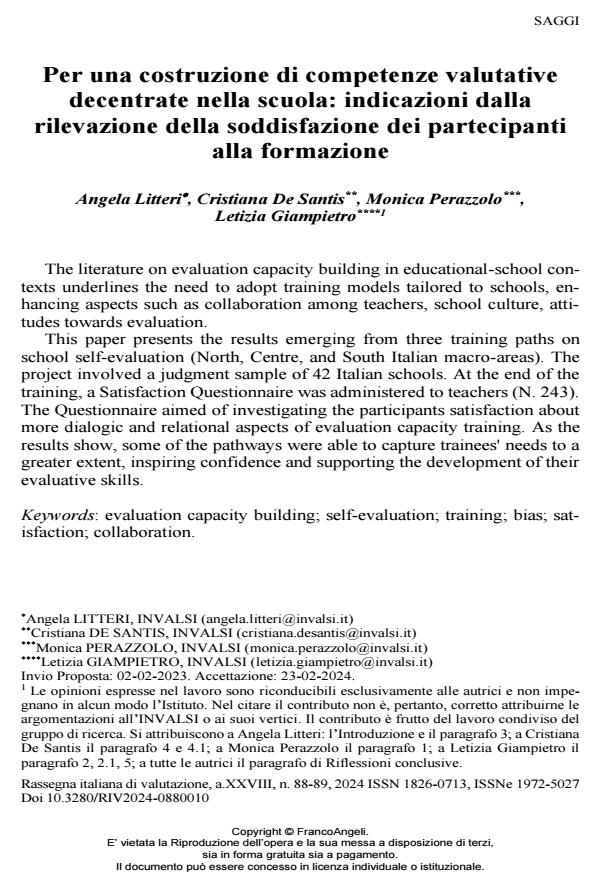Per una costruzione di competenze valutative decentrate nella scuola: indicazioni dalla rilevazione della soddisfazione dei partecipanti alla formazione
Journal title RIV Rassegna Italiana di Valutazione
Author/s Angela Litteri, Cristiana De Santis, Monica Perazzolo, Letizia Giampietro
Publishing Year 2024 Issue 2024/88-89
Language Italian Pages 21 P. 188-208 File size 442 KB
DOI 10.3280/RIV2024-088010
DOI is like a bar code for intellectual property: to have more infomation
click here
Below, you can see the article first page
If you want to buy this article in PDF format, you can do it, following the instructions to buy download credits

FrancoAngeli is member of Publishers International Linking Association, Inc (PILA), a not-for-profit association which run the CrossRef service enabling links to and from online scholarly content.
The literature on evaluation capacity building in educational-school contexts underlines the need to adopt training models tailored to schools, enhancing aspects such as collaboration among teachers, school culture, attitudes towards evaluation. This paper presents the results emerging from three training paths on school self-evaluation (North, Centre, and South Italian macro-areas). The project involved a judgment sample of 42 Italian schools. At the end of the training, a Satisfaction Questionnaire was administered to teachers (N. 243). The Questionnaire aimed of investigating the partic-ipants satisfaction about more dialogic and relational aspects of evalua-tion capacity training. As the results show, some of the pathways were able to capture trainees' needs to a greater extent, inspiring confidence and supporting the development of their evaluative skills.
Keywords: evaluation capacity building; self-evaluation; training; bias; satisfaction; collaboration.
Angela Litteri, Cristiana De Santis, Monica Perazzolo, Letizia Giampietro, Per una costruzione di competenze valutative decentrate nella scuola: indicazioni dalla rilevazione della soddisfazione dei partecipanti alla formazione in "RIV Rassegna Italiana di Valutazione" 88-89/2024, pp 188-208, DOI: 10.3280/RIV2024-088010